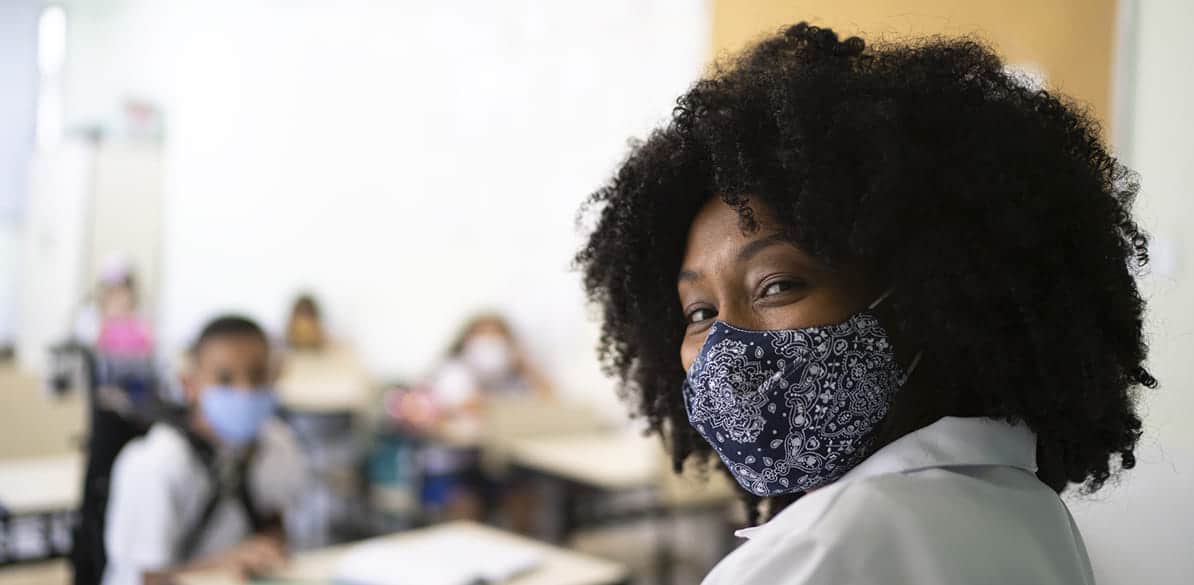Brazil

In Brazil, the largest country in Latin America, we are assigning more than one million euros to alleviate the impact of the COVID-19 crisis through numerous activities to reduce malnutrition and social exclusion and to promote employability, education and entrepreneurship.
Malnutrition and basic food needs
With the Mochilas de Sonrisas (Backpacks of Smiles) program, we are starting a pilot scheme in the shanty towns of Alagoas, in north-west Brazil, to help improve the nutrition of some 500 children under the age of six, and to address the latent situation of hunger and child malnutrition in post-Covid society. Of the 500 children targeted by the project, 450 are aged between one and five and 50 are babies under one year old. Over a four-month period, the participants will receive a backpack with a kit comprising a canned food supplement and a juicer, and will be supervised by a team of pediatricians and nutritionists to monitor their nutritional development for six months. The project, to which 200,000 euros has been allocated, is being undertaken by the CREN Foundation, a small local social entity that fights against child malnutrition.
To mitigate the impact of COVID-19 and fight hunger in the north-east of the country, one of the regions with the highest poverty rates, we are also collaborating with the Amigos do Bem association to distribute every month, for one year, some 4,700 basic food baskets with 15 kg of food for families in the arid areas of the states of Alagoas, Ceará and Pernambuco. Resources are also being used to drill and install three artesian wells powered by solar energy to supply the local populations in these areas. More than 73,000 people will benefit from the distribution of 846,000 kilos of food, and around 500 people will benefit directly (and another 2.5 million indirectly) from water from these wells, which will produce 64.8 million liters of water per year.
With the Cocinas Solidarias (Solidarity Kitchens) project, we are addressing the food needs of around 140,000 people thanks to the 30 soup kitchens where socially-committed cooks make meals for the people most in need of them. This program, which is being rolled out in collaboration with Gastromotiva in São Paulo, Rio de Janeiro, Manaos and Curitiba, is based on three cornerstones: food safety, the generation of social income/entrepreneurship, and community mobilization. The training of 30 socially-committed cooks in social entrepreneurship guarantees the production and distribution of thousands of meals to more than 130.000 people.
To support the economies of farming families whose sales have plummeted due to the closure of markets and restaurants, and in collaboration with the Bank of Brazil Foundation, a program has been started up to purchase their produce to put together the food baskets for people in vulnerable social situations due to COVID-19.
This initiative enjoys the participation of more than 7,300 farming families, whose food is included in 11,250 baskets weighing 20-24 kilos each, which are distributed among families in 91 municipalities in the states of Alagoas, Ceará, Maranhão and Sergipe.
Employability, training and entrepreneurship for women
Women in Brazil have some of the worst unemployment rates, the lowest salaries, and in many cases do not have any income with which to feed their families.
To fight against this inequality, and in collaboration with the Rede Mulher Empreendedora Institute (IRME), 52,520 women have been given technical training as part of the “Ela Segura” project. This initiative is aimed at supporting the economic recovery of women in socially vulnerable situations affected by COVID-19, as well as their families, which in many cases have no income even for the most basic foodstuffs. The program, to which more than 590,000 euros has been allocated, consists of technical training, regular monitoring of progress, and monthly economic aid to help boost 160 small enterprises that not only serve to feed their families but also to break the cycle of domestic violence, increase women’s visibility, and empower them.
In addition, with the ‘Coronavirus Against the Wall’ project, to which half a million euros have been allocated, we are training 6,000 women who live in shanty towns and have barely any income. The three-month courses, conducted in collaboration with the Generando Halcones Institute, are mainly intended to provide them with the knowledge necessary to start up a small enterprise, and to explain their social rights and strengthen their self-esteem and confidence, especially in the aftermath of the emotional impact of the pandemic.
To achieve the financial, social and emotional emancipation of the women living in shanty towns across the entire country, the Corona no Paredão project, developed with the Gerando Falcões Institute, seeks to generate a business culture as a means of making money. Some 19,000 women have already been trained. In addition, free internet ‘plazas’ have been set up in disadvantaged neighborhoods to minimize the digital exclusion of their inhabitants.
Social inclusion and disability
In Brazil, many people with disabilities live in areas where there are hardly any social programs to support them. In this respect, we are rolling out a number of activities in remote areas of the country so that these people can also benefit from job opportunities.
